2. Elections of 1941
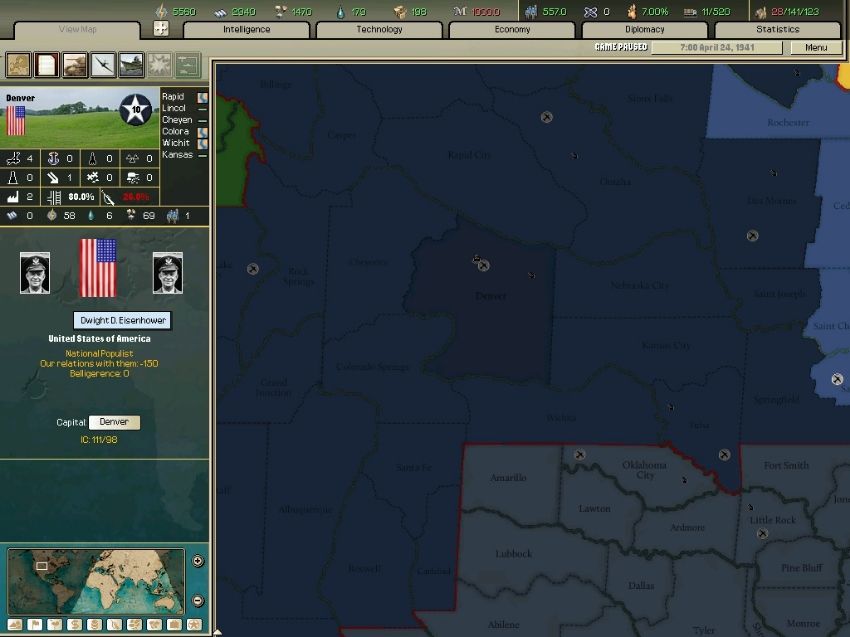

Before the elections of 1941 are discussed, there was one major power left to examine. That, of course, was the remnants of the pre-war United States. Based in Denver, this rump nation was still under the rule of what remained of MacArthur's military junta. Dwight Eisenhower had succeeded the dictatorial General, and continued most of his policies. The Confederation's border quickly began to fill up with those fleeing the persecutions. It was from these refugees that it was learned the Eisenhower regime was far from stable.
In fact, the regime was barely holding itself together. Dissent and riots raged throughout the nation, even in Denver herself. These riots were always put down harshly by the loyal army units, but it was a sign that it would be some time before the United States could get any revanchist ideas. In fact, it was rarely even referred to as the US any longer. First coined by a scholar in the Federated Union, the 'Plains Republic' became the name Eisenhower's regime was known as outside its territory. While the state retained claims on the 'rebels' outside its borders, few in the new nations registered said claims.
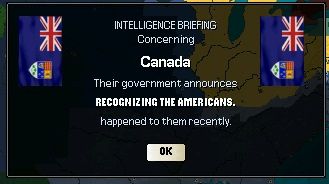
As a sign of this, King Edward VIII of Canada and Great Britain formally recognized the splinter states as independent nations. There is some debate on why he did so, as the Plains Republic maintained a sizable army and Eisenhower made quite clear that he didn't approve. The most logical answer remains the simplest. That the King merely hoped to gain support, where he had not found it from the pre-Fracturing government. As Canada was in a fierce fight with their Syndicalist counterparts across the Atlantic, that made a certain amount of sense. Regardless of the reasoning, King Edward's move did prove a catalyst in international relations.
Those nations that had not recognized the splinter states of America soon began to. From the German Empire and its network, to the South American states embroiled in their own war. Even the Syndicalists did...though that might just have been because Eisenhower was clearly anti-syndicalist. And anything that limited the Plains Republic was a good thing.
The Election:
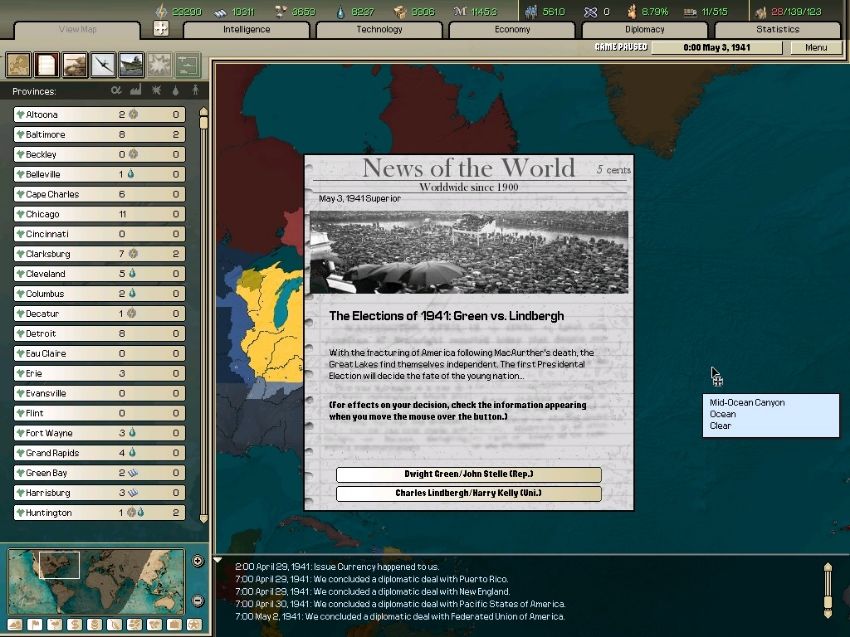

The international recognition was something of a side-show in the Confederation however. For the first time since the ill-fated run up to the '36 elections, free elections were being held in the Great Lakes. The major difference being, of course, that these elections were just for the Confederation and not the entire nation. Perhaps because of this, it allowed for candidates who would not have reached the national level, being put forth for the Confederation.
In this case, the election was primarily divided between two parties. The rump Republican Party, and the newly formed Unity Party.
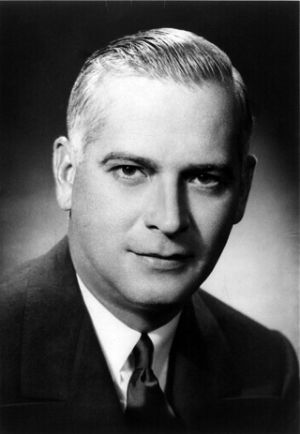
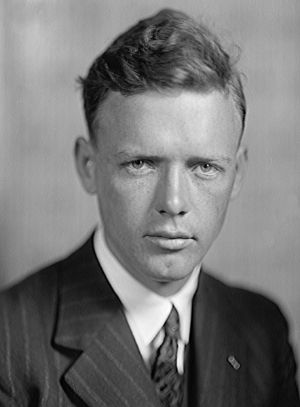
The former put forth Dwight Green, the man who would have been the Governor of Illinois, had America not shattered. Green was a popular figure, well known as a prosecutor. He rode this popularity to the Republican nomination, campaigning on a platform of interventionism. The Republicans argued that the Confederation had to assert its place on the global level, or they would be quickly isolated and left with no support. To do so, they argued, would be inviting Eisenhower to come in once the Plains Republic had recovered. And they certainly couldn't afford that.
On the opposite side of the spectrum, was the ever-popular Charles Lindbergh. As the nominee for the newly formed Unity Party, the charismatic pilot ran on a more isolationist policy. Only in the sense that the Confederation should not get involved in the ongoing Second Weltkreig however. Otherwise, Lindbergh argued that the Great Lakes must improve and expand its military and industrial power. With Chicago and New York City as core areas, the Confederation could afford the manpower to build its military. And they should do so, otherwise they were at risk from the other successor states.
Both sides were similar in that regard. The key difference remained Lindbergh's favoring of concentrating on the home front, and Green's preference for internationalism. In the end, it was that difference that decided the election.
The war-weary population, still feeling the worst effects of the Civil War and Crackdowns, were far more willing to avoid any further wars. Combine that with Lindbergh's fame and oratory skills, and it was little surprise that he won the election.
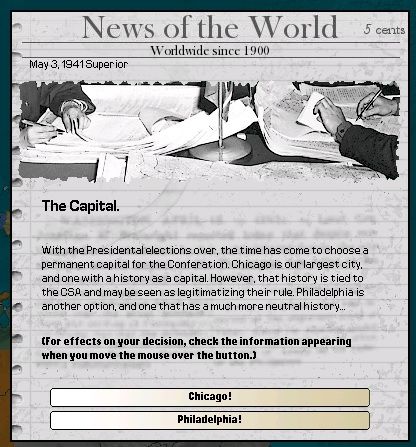
(slight typo there. New York is the largest city.)
One of the first moves made by the Lindbergh administration was establishing where the capital of the Confederation would be. Several cities put forth petitions to be the Capital, before it was narrowed down to two primary options. Chicago, working with its size and the fact it was the industrial heartland of the Confederation, and Philadelphia, playing on its history with the old United States. Others, such as New York or Detroit, were discarded for various reasons...the former because it was both exposed, and would needlessly antagonize the New Englanders.
There was little doubt which city would be chosen between the final two options however. While Chicago was the larger city and did have its claims as a working capital...those claims came from the CSA. It was true that Chicago may have more claim to being the 'Great Lakes' Capital, as it was actually on the lakes. The taint of the short lived Syndicalist revolution still hovered over the city however.
With that knowledge in mind, it was easier to pick Philadelphia to be the capital. While it was not on a Great Lake, it had the same history as a capital. The added historical significance from the Revolutionary War and its lack of taint from the Second Civil War just sealed the deal, so to speak. The Confederation's leadership moved from Michigan, to Pennsylvania...though the newly formed CIS was based in Chicago as a compromise.
The Military:
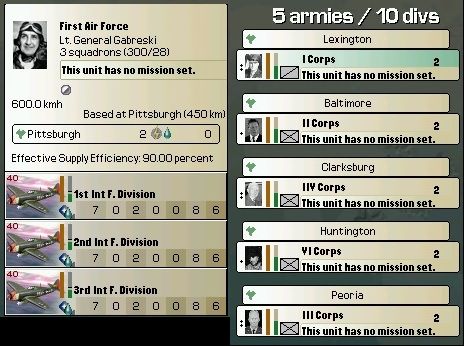

Fulfilling one of his campaign promises, one of the first thing President Lindbergh did after moving to Philadelphia was reforming and examining the Confederations military. Small as that force was, upon his taking office. Formed primarily from the National Guards of the Seven States (Illinois, Indiana, Michigan, Wisconsin, Maryland, Delaware, and Pennsylvania), it was not a large military. CSA veterans who had pledged their services to the new, more moderate, government did provide some backbone and needed training, but the Army was still small. With only ten divisions, two of which were relatively light cavalry formations, the Confederation Army was outnumbered four to one by the estimated force of the Plains Republic. While those forty divisions would be crippled by the home front of their unstable regime, it was the least of the Confederations worries when one compared even that force to what Mitteleuropa or the Internationale could bring to bear.
The Air Force, where President Lindbergh took a more personal interest, was even smaller. A mere three interceptor squadrons. While these planes were effective, it was still a pitiful force in the long run.
The Navy however...
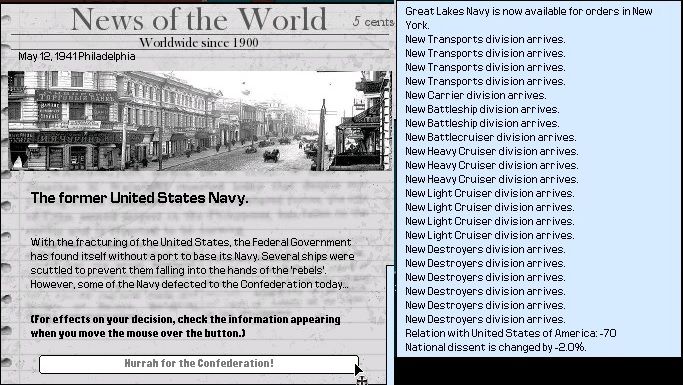
With its reduction to the Great Plains and Rocky Mountains, the United States had found itself with no way to maintain its massive navy. This force had been larger than all but the Kaiser's fleet and the Union of Britain's Republican Navy. Bereft of any ports, the Plains Republic had sent orders to scuttle the fleet, before the crews would be flown inland. Naturally, those loyal to the Eisenhower Junta did so, and many of the USN's ships were sunk by their own crews. However, with a fleet as large as the American one it was inevitable that not all would be sunk.
Many of the ships defected to the Confederation and the other successor states. Not many compared to the size of the Pre-War fleet, but enough. These ships, lead by the newly completed Enterprise, would form the basis of the new Confederation Navy. And for now, they would stay that way. This fleet, at least enough to deter invaders if not actually fight them off, would have to suffice while President Lindbergh pushed through his rearmament plans for the Army and Army Air Force.
But the military would not be the first test of the Lindbergh Administration...
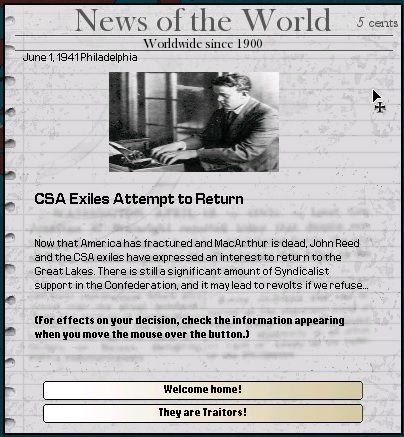
-0-0-0-0-0-0-0-0-0-0-0-0-0-0-0-0-0-
Now we start to see the first of my custom events. I'll explain what they are, and the options/effects of them down at the end of any update featuring them.
1. 'Recognizing the Americans': The Canadians get plus 50 relations with each of the American Successor States, and lose 50 with the rump USA.
2. 'Election of '41':
Republican Option: Dwight Green (Pres), John Stelle (VP).
Unity Party: Charles Lindbergh (Pres), Harry Kelly (VP)
3. 'The Capital': The original one is a random province in Wisconsin. I figured it made sense to change to a more logical one.
4. 'Former United States Navy': Fairly self explanatory, with the screenshot and all. I figured it made sense. And yes, the other factions also get ships.
5. 'CSA Exiles Attempt to Return': It isn't hard to believe that they would try. Even Lindbergh is liberal compared to the MacArthur of this timeline. I'll probably make an equivalent event for the FUA to have the America First attempt to return.
Effects:
Accept the Return:

Deny the Return:

NOTE: This is not an interactive AAR. You can state what you prefer, but I can't actually hold a vote on this. That being said, I am going to ask for permission on that front, since I think it could be fun. Just don't place any votes or anything like that until I see if we can do it, okay?

